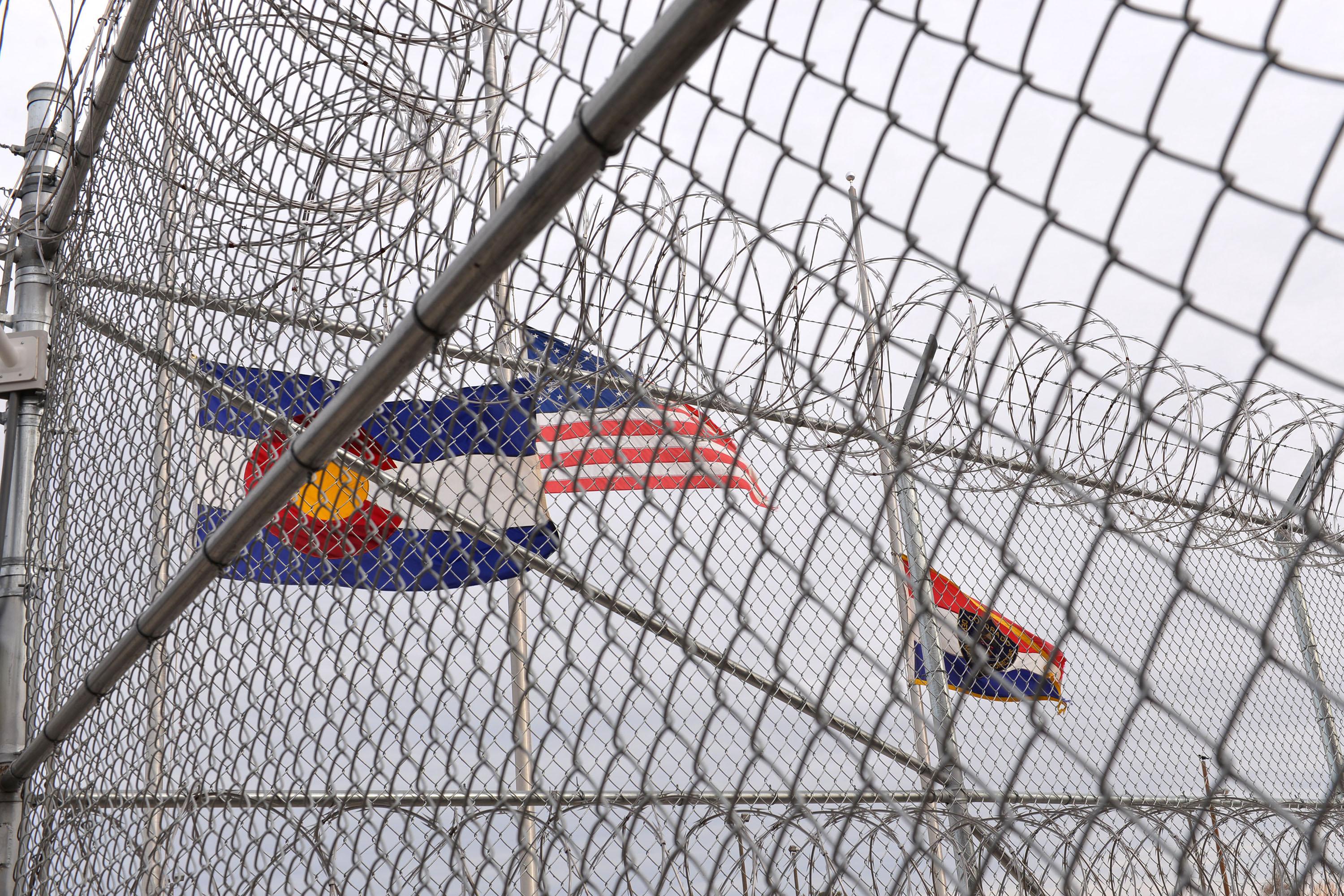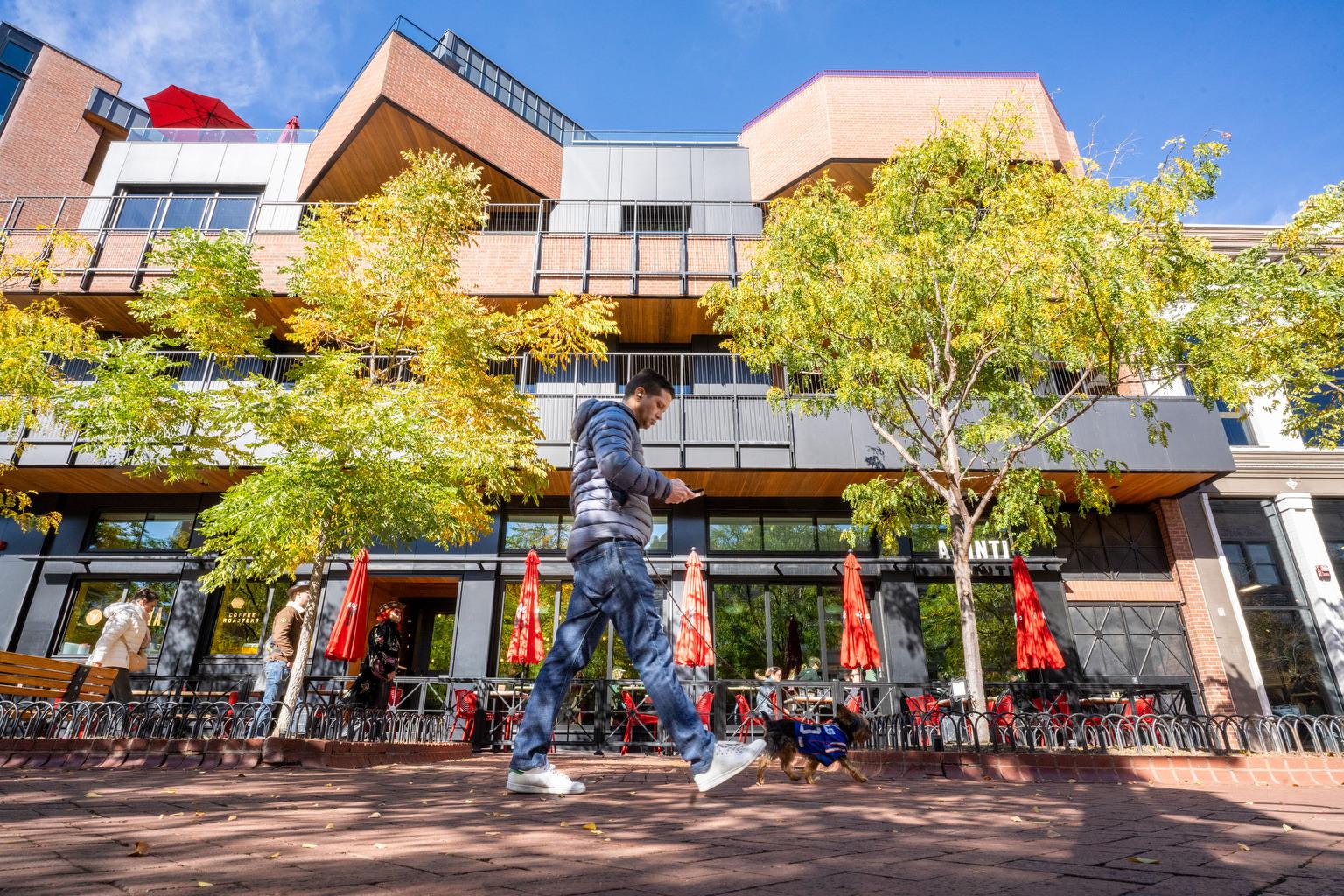
The legislature has been the center of a contentious debate over whether the state needs money for more prison beds. This time, the debate isn’t between Democrats and Republicans: The Colorado Department of Corrections says it needs the beds to house a growing inmate population, but lawmakers from both parties say they want to be sure of the numbers before they appropriate funds. Here’s what you should know about where things stand:
Recently, Colorado was closing prisons:
In the last year or so, there's been talk of opening some of those shuttered prisons. And that's because recent projections show the prison population will grow by as much as 1,200 inmates over the next year and continue to grow. The state's director of prisons, Travis Trani, says those projections don't come from him, they come from the nonpartisan legislative council and the state division of criminal justice.
Lawmakers are skeptical about projected prison population numbers growing:
First, lawmakers are watching as the Corrections budget request for the upcoming fiscal year creeps up toward a billion dollars, and they want to make sure the money's really needed. Republican state Rep. Cole Wist of Centennial, who sits on the House Judiciary committee, says seven of the past 10 years of these projections have been off -- typically too high. And Wist doesn't want to allocate more money if the numbers are wrong. So the governor has set up a working group for lawmakers to meet with corrections department and public safety officials to try get a better handle on the numbers.
The projections are related to more felony cases, and changing attitudes:
To understand the debate now, you have to go back several decades when views on crime and punishment began to change. In the 1970s and 1980s there was an emphasis on rehabilitation. But Democratic state Rep. Pete Lee of Colorado Springs, who also sits on the House Judiciary Committee, says things changed: “We are still living the legacy of the 90s when we got tough on crime in Colorado and enacted numerous statutes that put people into prison for long periods of time and made it very difficult for them to get out.”
A few years back lawmakers started seeing the results of their get tough on crime approach -- the high cost of incarceration and what they thought were too many non-violent offenders being sent to prison. So in 2013, they changed sentencing laws to be more lenient on drug offenders. Fast-forward and today: prosecutors blame those sentencing reforms for a rise in crime and say it's meant more dangerous criminals in Colorado's communities. And they've been filing a lot more felony cases, which is expected to lead to more prisoners.
Parole also has an impact:
Lawmakers want to know why there are thousands of inmates waiting for parole hearings. Lee says the parole board has been too reluctant to grant parole to eligible inmates. That means more people staying longer in prison. This session, Lee is working on legislation that would push the board to grant parole to more of these eligible offenders.
There may be ways to house prisoners without adding beds:
Prison reform advocates say there are beds ready for these parolees in the the community. They point to several hundred empty beds in what's called community corrections, where they could live without spending extra money to build up prisons.
Corrections is struggling with recruiting and retaining workers:
Part of it has to do with Colorado's strong economy. The state's prisons have huge staff vacancies, particularly the ones in rural areas. Trani says the high security Sterling Correctional Facility in northeast Colorado has a shortage of 90 officers -- that's almost 1/4 of their staff. The shortages have led to more assaults on staff by inmates because, he says, there aren't enough workers to supervise them.
"Corrections is a very difficult environment. It's very stressful. Some studies show that corrections officers are four times more likely to have PTSD than a combat veteran. So it can wear on people and when the economy is strong and they see they can make more money outside of a prison environment and they see that they don't have to be exposed to that stress 8-10 hours a day, they leave."
Trani says recruiting and retaining workers would be easier if they could pay more. Salaries for officers start at just over $40,000 a year. People who work at county jails make about $10,000 more a year, so the department loses workers to jails. The next fiscal year's budget request includes money to grant hiring bonuses in hard-to-fill locations and incentive pay for prison workers who live in high cost areas like Denver.
There's a deadline to sort this out:
The governor's working group has until April 1 to look at the future needs of the state's prisons. Then it's up to the legislature to decide how much money the department really needs.









